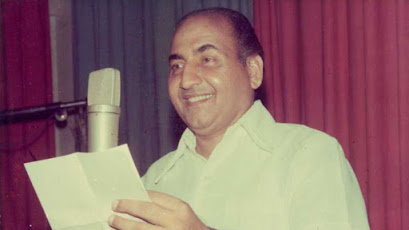हर एक शहर को नफ़रत है इब्न-े आदम से
हर एक मक़ाम पे मेला है तल्ख़-कामी का
हर एक अहद में सूली उठाये फिरते हैं
वो चंद लोग जो दुनिया से दूर होते हैं
वो लोग जो ठोकर पे मार देते हैं
कुलाह-ो-तख़्त-ो-सियासत की अज़मतें सारी
ज़मीं उन्ही को पयाम-े हयात देती है
वही पयाम जिसे तुम अजल समझते हो
Har ék śahar ko nafrat hai ibn-é-ādam séHar ék maqām pé mélā hai talkh-kāmī kā
Har ék ahad méin sūlī uthāyé phirté haiṅ
Vo chand log jo duniyā sé dūr hoté hain
Vo chand log jo thokar pé mār dété hain
Kūlāh-o-takht-o-siyāsat kī azmatéin sārī
Zamīṅ unhīṅ ko payām-é-hayāt détī hai
Vahī payām jisé tum ajal samajhté ho

Every place has a fair of bitterness,
Carrying the cross and roaming about in each era,
Those few people who are distant from this world,
Those few people who spurn at
The glory of crown, throne, political power,
The earth chooses them to give the message of Life,
The message that you understand as death.
- Anwar Nadeem (1937-2017)
English translation by Saira Mujtaba

























.png)

.JPG)

.png)






